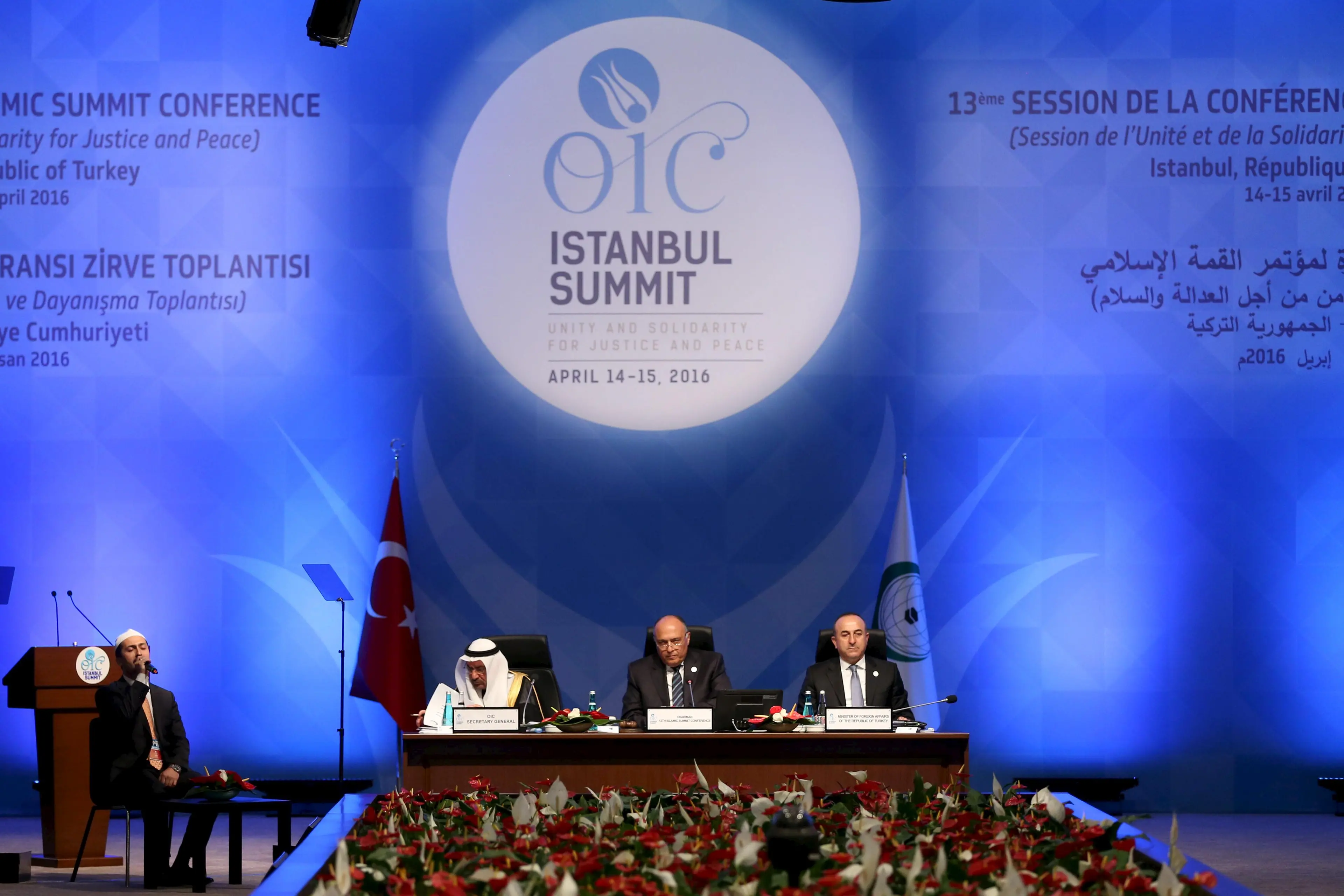PHOTO
By Bernardo Vizcaino
June 12 (Reuters) - The Jeddah-based International Islamic Trade Finance Corp (ITFC) plans to strengthen its global network of offices in an effort to increase the use of sharia-compliant banking in merchandise trade.
"We want to be closer to member countries - to do this we need to decentralise our activities," said Hani Salem Sonbol, chief executive of the ITFC, a member of the Islamic Development Bank Group (IDB).
The ITFC, which currently has offices in Jakarta, Dakar and Istanbul, will move more staff there and open a branch in Dubai this year to serve as a gateway to Africa, he added.
Islamic trade finance, which follows religious principles such as a ban on interest, accounts for only a tiny fraction of the trillions of dollars of bank-intermediated trade finance conducted globally every year.
But the ITFC, which uses its expertise and funds to facilitate Islamic trade finance, says it is expanding its activities partly through new business with countries outside the traditional core areas of sharia-compliant finance in the Gulf and southeast Asia.
Last month, it signed financing agreements with Djibouti, Comoros, Mali and Mauritania, and is exploring transactions in Guyana, the newest member of the IDB Group, Sonbol said.
The ITFC approved transactions worth $6.1 billion in the financial year to last October, up from $5.2 billion a year earlier. It more than doubled financing approvals to sub-Saharan Africa; Egypt, Pakistan and Turkey saw some of the biggest individual increases in approvals.
Difficulties in the global economy could dampen further growth but the ITFC aims for around $7 billion of approvals this year, Sonbol said.
Traditionally, Islamic banks have not become heavily involved in trade financing as it often requires large balance sheets; they have left such business for Western banks to dominate.
To overcome this, the ITFC has developed a network of more than 70 financial institutions which last financial year provided $4.2 billion via 25 syndicated deals, representing 68 percent of the institution's total trade financing. The rest came from its own resources.
Strategic partnerships are growing: Last year, the ITFC closed a $350 million export syndication in favour of Turkey's export-import bank, and in February it signed a partnership agreement with Morocco's largest lender by assets, Attijariwafa Bank.
The ITFC's mandate is to promote trade among countries of the 57-member Organisation of Islamic Cooperation (OIC). Trade within the group accounted for 19.5 percent of OIC countries' total trade in 2015, up from around 12 percent in 2011, and the ITFC aims for 26 percent by 2025, Sonbol said.
The IDB is the largest shareholder in the ITFC with 37.6 percent of paid-up capital; Saudi Arabia holds second place with 16.9 percent. Last year, the ITFC's general assembly approved an increase of Iran's subscription by 8,500 shares, which once paid would allow it to take third spot behind Saudi Arabia.
(Editing by Andrew Torchia)
© Reuters 2016
June 12 (Reuters) - The Jeddah-based International Islamic Trade Finance Corp (ITFC) plans to strengthen its global network of offices in an effort to increase the use of sharia-compliant banking in merchandise trade.
"We want to be closer to member countries - to do this we need to decentralise our activities," said Hani Salem Sonbol, chief executive of the ITFC, a member of the Islamic Development Bank Group (IDB).
The ITFC, which currently has offices in Jakarta, Dakar and Istanbul, will move more staff there and open a branch in Dubai this year to serve as a gateway to Africa, he added.
Islamic trade finance, which follows religious principles such as a ban on interest, accounts for only a tiny fraction of the trillions of dollars of bank-intermediated trade finance conducted globally every year.
But the ITFC, which uses its expertise and funds to facilitate Islamic trade finance, says it is expanding its activities partly through new business with countries outside the traditional core areas of sharia-compliant finance in the Gulf and southeast Asia.
Last month, it signed financing agreements with Djibouti, Comoros, Mali and Mauritania, and is exploring transactions in Guyana, the newest member of the IDB Group, Sonbol said.
The ITFC approved transactions worth $6.1 billion in the financial year to last October, up from $5.2 billion a year earlier. It more than doubled financing approvals to sub-Saharan Africa; Egypt, Pakistan and Turkey saw some of the biggest individual increases in approvals.
Difficulties in the global economy could dampen further growth but the ITFC aims for around $7 billion of approvals this year, Sonbol said.
Traditionally, Islamic banks have not become heavily involved in trade financing as it often requires large balance sheets; they have left such business for Western banks to dominate.
To overcome this, the ITFC has developed a network of more than 70 financial institutions which last financial year provided $4.2 billion via 25 syndicated deals, representing 68 percent of the institution's total trade financing. The rest came from its own resources.
Strategic partnerships are growing: Last year, the ITFC closed a $350 million export syndication in favour of Turkey's export-import bank, and in February it signed a partnership agreement with Morocco's largest lender by assets, Attijariwafa Bank.
The ITFC's mandate is to promote trade among countries of the 57-member Organisation of Islamic Cooperation (OIC). Trade within the group accounted for 19.5 percent of OIC countries' total trade in 2015, up from around 12 percent in 2011, and the ITFC aims for 26 percent by 2025, Sonbol said.
The IDB is the largest shareholder in the ITFC with 37.6 percent of paid-up capital; Saudi Arabia holds second place with 16.9 percent. Last year, the ITFC's general assembly approved an increase of Iran's subscription by 8,500 shares, which once paid would allow it to take third spot behind Saudi Arabia.
(Editing by Andrew Torchia)
© Reuters 2016





















